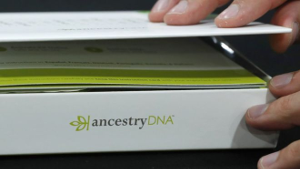Ancestry.com is incredibly popular right now, thanks in large part to their handy at-home DNA testing kit for curious customers eager to know their genetic makeup. But many customers have overlooked Ancestry’s terms of service agreement, which allows the company the right to sell DNA information to third parties.
More people than ever are curious to find their genetic heritage, and the tests are very simple and accessible to the average consumer. Ancestry and competitor 23andMe each sell reports for under $100. The tests require the customer send a saliva sample for testing, and just a few weeks later, they have access to their individual genetic report.
Lately however, Ancestry has had some problems in defending their brand to consumers worried about privacy. In its Terms of Service agreement, Ancestry requires that you license your DNA to them, which means they can sell it to third parties.
Joel Winston, a consumer protection attorney and former deputy attorney general of New Jersey, published a blog post in May with the claim that Ancestry.com was “taking DNA ownership rights” from customers and their families.
Ancestry’s Chief Privacy Officer Eric Heath disagreed with this accusation, underscoring the company’s view in a statement:
…The consumer maintains ownership of their data. This is actually why we need a license in order to conduct our analysis, display their results, and so on. Not only do they own their own data, but we allow them to download their raw data and they can ask us to destroy the data any time.
According to Ancestry, there are several points where consumers may opt out of allowing their DNA to be used for research or third parties, and can even choose to have it destroyed. In the process of “activating” a kit through an online sign-up form, there is a pop-up screen that asks the customer if they want their DNA to take part in any third-party research projects. The customer can choose “yes” or “no.”
Customers are also allowed to change their minds later in the process. So if they agree to let their DNA be used for research or commercial purposes in the beginning, they can later say no.
But there are further complications when it comes to genetic testing. While Ancestry.com removes personally identifying information attached to your DNA – like your name and contact information - there is a chance that the information could be compromised.
The Ancestry terms state: “There is a potential risk that data about you could become public as the result of a security breach… We take precautions to reduce the likelihood that this will happen and DNA samples are not transferred with your name or contact information.”
Another problem Winston pointed out was that the license was “perpetual,” meaning the company could sell your DNA even after death. But Ancestry no longer describes the license for customers’ DNA as “perpetual”, and the phrase “to the extent and in the form or context we deem appropriate” has been removed.
Still, the risk is on the consumer, so it’s good to be aware of potential problems before agreeing to genetic testing.













